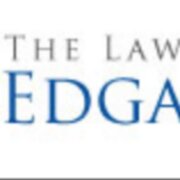Best ADR Mediation & Arbitration Lawyers in Redlands
Share your needs with us, get contacted by law firms.
Free. Takes 2 min.
List of the best lawyers in Redlands, United States
About ADR Mediation & Arbitration Law in Redlands, United States
Alternative Dispute Resolution (ADR) includes mediation and arbitration, which are structured processes used to resolve legal disputes without going to court. In Redlands, United States, ADR is commonly used for civil, commercial, employment, family, and community disputes. It provides an informal, confidential, and often cost-effective way to resolve disagreements with the help of a neutral third party, such as a mediator or arbitrator. Both mediation and arbitration allow individuals and businesses to avoid lengthy litigation, often leading to faster, mutually satisfactory solutions.
Why You May Need a Lawyer
Many people in Redlands seek legal help for ADR mediation and arbitration for a variety of reasons. You may need a lawyer if you:
- Are entering into a business or employment contract that includes mandatory arbitration or mediation clauses
- Have a civil dispute, such as landlord-tenant, neighbor, or small business disagreements
- Are involved in family law matters, such as divorce or child custody, where ADR may be required by the court
- Require guidance to navigate complex legal documents and rules during the ADR process
- Need representation or advice to ensure your rights are protected during mediation or arbitration
- Face enforcement issues following an arbitration award or mediated agreement
- Are unsure when to choose mediation, arbitration, or traditional litigation
Local Laws Overview
ADR processes in Redlands operate under California law and local court rules. California encourages ADR through statutes such as the California Arbitration Act and statutes on court-connected mediation. Key aspects include:
- Certain cases may require mandatory mediation or arbitration before proceeding further in court
- Mediation is typically non-binding, meaning no party is forced to accept a resolution, whereas arbitration can be binding, resulting in decisions enforceable by law
- Local courts offer ADR programs and maintain lists of qualified mediators and arbitrators
- Agreements and awards reached through ADR are generally recognized and enforceable by local courts
- Confidentiality is protected in most ADR proceedings, and communications during mediation cannot usually be used as evidence in subsequent litigation
- Parties have the right to legal representation during any stage of the ADR process
Frequently Asked Questions
What is the main difference between mediation and arbitration?
Mediation involves a neutral third party who helps the disputing sides negotiate a voluntary agreement. Arbitration involves a neutral third party who listens to both sides and makes a decision, which may be binding.
Are ADR procedures mandatory in Redlands?
Some courts in Redlands require parties to attempt mediation or arbitration before allowing a case to proceed to trial, especially in civil and family matters.
Will I need a lawyer during mediation or arbitration?
Although not required, legal representation can help you understand your rights, draft agreements, and navigate complex issues during ADR sessions.
How long does ADR typically take compared to court litigation?
ADR is usually faster than litigation. Mediation sessions may take a day or two, while arbitration may take several weeks, depending on case complexity.
Is the outcome of arbitration always final?
Binding arbitration decisions are final and enforceable in court, with only limited grounds for appeal. Nonbinding arbitration allows parties to reject the decision and proceed to court.
Are ADR proceedings confidential?
Yes, most ADR sessions are confidential. Mediators and arbitrators keep discussions private, and documents are not public record.
What types of disputes can be resolved through ADR in Redlands?
Business disputes, contract issues, employment matters, landlord-tenant disagreements, family law cases, and community conflicts are commonly addressed through ADR.
What happens if one party refuses to participate in ADR?
If ADR is court-ordered, refusal to attend can result in penalties or negative consequences in subsequent litigation. If voluntary, parties cannot be forced to participate.
How much does ADR cost?
Costs vary based on the mediator or arbitrator’s fees and the length of the process, but ADR is generally less expensive than court trials.
How do I enforce an ADR agreement or award?
Mediated agreements and arbitration awards can usually be filed and enforced through local courts if a party fails to comply.
Additional Resources
For further information or assistance, consider contacting:
- San Bernardino County Superior Court ADR Program - Provides local rules, forms, and lists of court-approved mediators and arbitrators.
- California Department of Consumer Affairs - Offers guidance on consumer and business disputes, as well as ADR processes.
- State Bar of California - Information on selecting qualified attorneys and ADR professionals.
- Community Mediation Services in Redlands - Local nonprofit organizations offering low-cost or free mediation for certain types of disputes.
Next Steps
If you believe ADR mediation or arbitration might be appropriate for your situation in Redlands, take the following steps:
- Identify the type of dispute and check if there is a mediation or arbitration clause in your contracts
- Contact a qualified attorney or mediator to discuss your legal rights and the best strategy for your case
- Gather all relevant documentation, such as contracts, correspondence, and any legal notices
- Visit the San Bernardino County Superior Court website or local legal aid offices for information about ADR programs
- Schedule a consultation with a local lawyer specializing in ADR to evaluate your options before proceeding
With the right legal guidance, you can resolve your dispute efficiently and protect your interests in the ADR process.
Lawzana helps you find the best lawyers and law firms in Redlands through a curated and pre-screened list of qualified legal professionals. Our platform offers rankings and detailed profiles of attorneys and law firms, allowing you to compare based on practice areas, including ADR Mediation & Arbitration , experience, and client feedback.
Each profile includes a description of the firm's areas of practice, client reviews, team members and partners, year of establishment, spoken languages, office locations, contact information, social media presence, and any published articles or resources. Most firms on our platform speak English and are experienced in both local and international legal matters.
Get a quote from top-rated law firms in Redlands, United States — quickly, securely, and without unnecessary hassle.
Disclaimer:
The information provided on this page is for general informational purposes only and does not constitute legal advice. While we strive to ensure the accuracy and relevance of the content, legal information may change over time, and interpretations of the law can vary. You should always consult with a qualified legal professional for advice specific to your situation.
We disclaim all liability for actions taken or not taken based on the content of this page. If you believe any information is incorrect or outdated, please contact us, and we will review and update it where appropriate.









